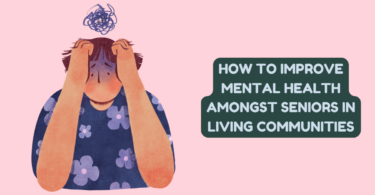
Military veterans often face unique challenges while maintaining their physical and mental well-being. Transitioning from active duty to civilian life can be difficult, and many veterans struggle with issues like PTSD, depression, and anxiety. To help veterans take care of themselves, we’ve compiled 7 tips for practicing self-care and wellness. Whether you’re a recent veteran or have been out of the military for years, these tips can help you prioritize your health and well-being.
- Prioritize Sleep
Sleep is crucial for overall health and well-being, and getting enough quality sleep is especially important for veterans coping with physical and mental health issues. Lack of sleep can exacerbate symptoms of post-traumatic stress disorder (PTSD) and other mental health conditions and increase the risk of physical health problems.
As a veteran, you may have experienced disrupted sleep patterns due to your experiences. However, you can improve your sleep habits by creating a consistent sleep schedule by going to bed and waking up at the same time each day. Create a relaxing bedtime routine that includes activities such as reading or taking a warm bath. Avoid stimulants such as caffeine and alcohol, particularly close to bedtime.
You should also sleep seven to eight hours per night at least. Create a sleep-conducive environment by keeping your bedroom cool, dark, and quiet, and avoid using electronic devices before bedtime. If you face trouble sleeping, talk to your healthcare provider for advice and treatment options.
- Manage Chronic Pain
Many veterans may experience chronic pain related to injuries sustained during military service. If you’re struggling with pain, consider talking to your healthcare provider about different treatment options, such as physical therapy, medication, or alternative therapies like acupuncture. Additionally, consider asbestos trust funds if you were exposed to asbestos during your service and developed asbestos-related diseases that cause pain. You can acquire these funds if you win a case related to asbestos exposure, allowing you to get financial assistance to manage your condition and improve your quality of life.
- Stay Physically Active
Regular exercise can help reduce the risk of chronic health problems such as obesity, diabetes, and heart disease and improve mental health by reducing symptoms of depression and anxiety.
Find a physical activity you enjoy, like jogging, weightlifting, swimming, or yoga. Aim for about 150 minutes or more of moderate-intensity aerobic exercise or about 75 minutes of vigorous-intensity exercise each week alongside muscle-strengthening activities at least two days per week. If you have physical limitations, consult your healthcare provider for advice on safe and appropriate exercise options.
- Eat a Healthy Diet
A diet of fruits, vegetables, lean protein, healthy fats, and whole grains can help reduce the risk of health problems and improve mental health by providing the nutrients your body and brain need to function properly.
Include different types of vegetables and fruits in your diet and lean protein sources such as fish, chicken, and beans. Limit your intake of sugar, processed foods, and saturated and trans fats, which can increase the risk of chronic health issues.
- Connect with Others
As a veteran, you may have a community of fellow veterans who understand your experiences and can provide support and camaraderie. Joining a veterans’ organization or attending a support group can be a great way to connect with others having similar experiences.
If you’re struggling with mental health issues such as depression or PTSD, consider seeking professional help. A mental health professional can provide counseling and other therapies to help you manage symptoms and improve your quality of life.
- Practice Stress-reduction Techniques
Stress is a normal part of life, but chronic stress can negatively impact physical and mental health. Veterans may be particularly prone to stress due to their experiences in the military. Practicing stress-reduction techniques can help reduce the negative impacts of stress on your health.
Techniques such as deep breathing, meditation, yoga, and progressive muscle relaxation can help reduce stress and enhance relaxation. Look for a way that works for you and make it a regular part of your self-care routine.
- Try New Hobbies and Activities
Trying new hobbies and activities can be an excellent way to reduce stress, improve mood, and connect with others. Hobbies such as painting, gardening, and playing music can be particularly significant for promoting relaxation and mindfulness.
To find new hobbies and activities, consider attending community events or classes. You can also try volunteering for organizations that align with your interests or joining a sports team or club.
Conclusion
Practicing self-care and wellness is crucial for veterans to maintain their physical, mental, and emotional health. By implementing the tips above, veterans can establish a routine that prioritizes their well-being and helps them cope with the challenges they face after serving in the military.
Veterans need to remember that self-care is not a luxury but a necessity, and seeking support from healthcare professionals or peer groups can also be significant in their journey toward a healthier lifestyle.






